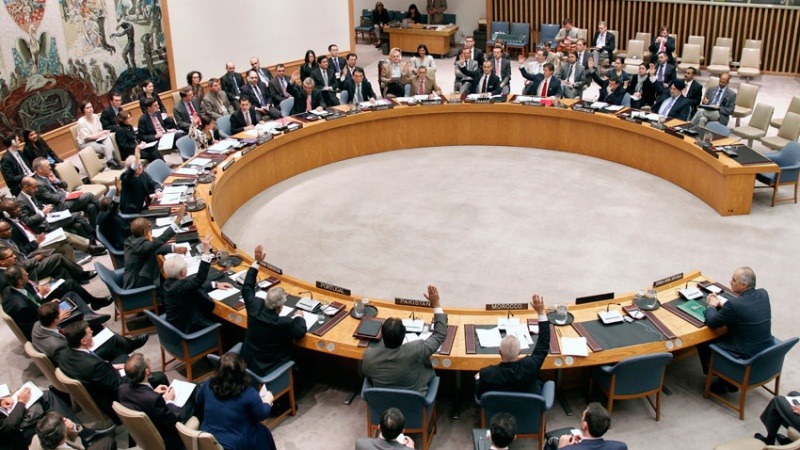In February, Kuwait took over the UN Security Council's monthly presidency from Kazakhstan. During its leadership, Astana acted as an honest broker, known for its effective balanced approach and neutrality to all international actors, states and organizations as part of multilateral diplomacy.
Over the course of the month of January, Kazakhstan steered the work of one of the main UN bodies. During its chairmanship period, the Kazakh presidency held about 30 consultations, briefings and debates, which resulted in several resolutions and statements by the Council President.
Kazakhstan, being the first Central Asian state elected to the UN Security Council, pays special focus on regional challenges and Afghanistan, which faces numerous challenges, including increased terrorism, drug production and trafficking, and the presence of so-called “Islamic State” and Al-Qaida.
By the request of Kazakhstan, a UNSC delegation visited Kabul last month, for the first time since 2010, before a full ministerial debate on Afghanistan and Central Asia took place. During the visit, meetings were held with the country's top leadership, representatives of political parties and civil society.
Ministerial debates of the UN Security Council held on January 19 focused on building a regional partnership in Afghanistan and Central Asia as a model to link security and development. It was chaired by Kazakhstan’s Minister of Foreign Affairs.
Kazakhstan importantly stressed that the challenges of Afghanistan were not not only a national problem but should be discussed within a wider context. The interdependence of security and development, including the collaboration with UN agencies, to assist the Afghan government and its citizens were emphasized by Astana.
Astana noted that only by tackling poverty and offering opportunities for a better life for people, can lasting stability and hope be brought to Afghanistan. “The Security Council underscores the importance of continued progress on electoral reform and towards the holding of credible and inclusive parliamentary elections in 2018 and presidential elections in 2019”, stated in the UNSC’s document adopted at the end of the meeting which focused on the development and security issues in Afghanistan. Among other issues, the Security Council reaffirms its commitment to the “sovereignty, independence and territorial integrity of Afghanistan and the Central Asian States”.
Another matter that Kazakhstan raised particular attention to during its chairing of the UN Security council concerns the non-proliferation of weapons of mass destruction. On 18 January, Astana organised a high-level UNSC event on “Non-proliferation of weapons of mass destruction: confidence-building measures”, chaired by President Nursultan Nazarbayev.
“Kazakhstan has a proud tradition of support for a world free of weapons of mass destruction, and for the global non-proliferation regime. I thank President Nazarbayev for his personal leadership on this vital issue”, underlined UN Secretary-General Antonio Guterres during the discussions. He added, “Kazakhstan’s contributions include rejecting the possession of nuclear weapons and founding the International Day against Nuclear Tests”.
The meeting demonstrated that confidence-building measures, as well as the strengthening of preventive diplomacy tools, can serve as a starting point for progress making on many critical issues that may not be resolved quickly due to the political situation between different global powers.
As the international community strives to find a fair and lasting solution to the dispute over North Korea’s nuclear weapons program, Kazakhstan could represent a positive model for DPRK on how to trade in a nuclear arsenal for massive investment and financial assistance packages.
Kazakhstan which has about 500 of its own citizens having joined the so called “Islamic State” in Syria and Iraq also paid special focus on the fight against terrorism. In this framework, on 18 January, the authorities in Astana organised a special high-level event at the UN headquarters to launch the draft Code of Conduct for the Achievement of a Terrorism-Free World.
“The major goals of the document are the creation of a broad international coalition of partner countries on counter-terrorism and the achievement of a world free of terrorism by the 100th anniversary of the UN in 2045”, stated by Kazakhi Foreign Ministry.
Kazakhstan advocates for the widest implementation of multilateral mechanisms and instruments to combat foreign terrorist fighters, and to shut down the channels of financial support for their activities through the illegal trade in drugs, natural resources and cultural artifacts.
The Kazakh presidency also held planned activities on the situation in the Middle East and Cyprus, Libya, Mali, Somalia and South Sudan, as well as arranged the trip of the UN Security Council members to Washington to meet with the leadership of the United States.
Taking into account Astana’s involvement in many global and regional processes, its proactive position in mediation and confidence building, Kazakhstan stressed during its presidency the utmost importance of preserving peace and stability and to ensure the incremental and sustainable development of our fragile world. Astana calls on world leaders to commit more effort and goodwill to head towards lasting peace and prosperity for all.
The Brussels Times

